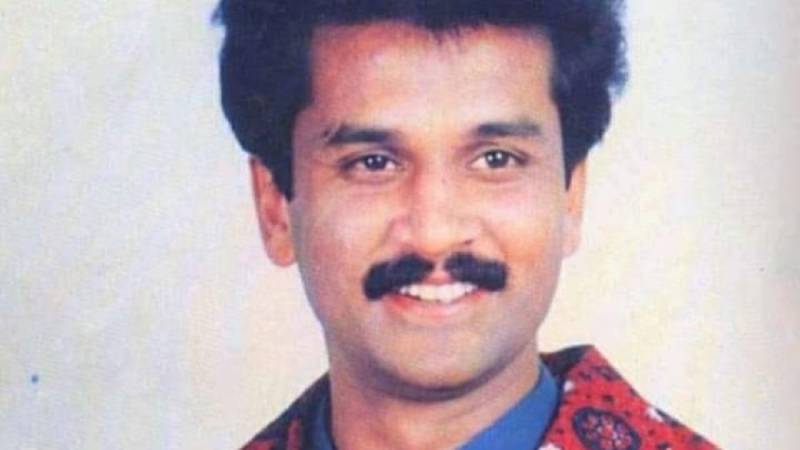
The date December 27 is forever etched in the minds of Pakistanis as the day former prime minister Benazir Bhutto was slain during a bomb and gun attack in Rawalpindi in 2007. But the date is also shared by another who hailed from Sindh and profoundly impacted its people.
A decade before Benazir's assassination, Sindhi folk singer Abdul Raheman Mughal, also known as Sarmad Sindhi, lost his life.
He was killed in a road accident near Thatta.
His passing on December 27, 1997, deprived Sindh of one of its most melodious voices.
An engineer by training, Sarmad Sindhi turned to singing during the 1980s and 1990s through his melodious and God-gifted voice.
Born in a middle-class family in Pariyalo town of district Khairapur in 1958ly, Sarmad Sindhi would often sing during school and college events.
While pursuing a formal engineering education, his life decidedly turned towards singing when he got an opportunity to showcase his skills on [Radio Pakistan] after being spotted by Kausar Buriro. Later, Pakistan Television director Sami Baloch picked up Sarmad Sindhi, and the rest was history.
Sarmad Sindhi took the opportunity to showcase his talent on these mediums with both hands. The fruits of his singing earned him unparalleled plaudits and fame across the country. What endeared him to the masses was his ability to sing not just in his native Sindhi but also in Seraiki and Urdu.
The politics of singing
During the dictatorial regime of General Ziaul Haq, Sarmad Sindhi decided to align with the political movement against the dictatorship. He sang songs to attract the masses towards the Movement for the Restoration of Democracy (MRD).
His melodious voice helped foster nationalist politics in Sindh.
Sarmad Sindhi's songs became so famous amongst the public that they would often be played by tractor drivers late at night while cultivating barren lands.
It helped his cause that he sang the poetry of prominent Sindhi poets such as Sheikh Ayaz, Ustad Bukhari, Ghulam Hussain Rangrez, Haleem Baghi and Mama Juman Darbadar.
He was awarded several titles and awards for his services, including Victor Arra of Sindh and Sindh Jo Bechal.
His biography Sindh Jo Bechal was posthumously published in 1998.
Seasoned politicians of Sindh, including Benazir Bhutto, Rasool Bux Palijo, GM Syed, Bashir Qureshi and Qadir Mangsi, were among his staunch admirers.

